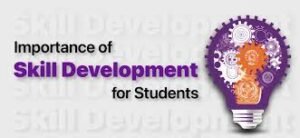Like earning a degree or gaining work experience, skill development plays a vital role in landing your dream job. Employers in the 2020s have consistently ranked workplace and human skills among their top hiring priorities, with a LinkedIn Learning & Development study noting that 64% of professionals plan to reskill their employees. Whether you’re aiming for career advancement, switching industries, or building personal confidence, skill development is the key to long-term success.
What is Skill Development?
Skill development is the process of enhancing abilities to perform tasks more effectively. In the workplace, it often falls into three categories:
-
Upskilling: Improving skills in your current role
-
Cross-skilling: Learning new but related skills for your role
-
Reskilling: Building new skills to transition into a different role
You don’t need to be part of a workplace program to develop skills. Students, job seekers, and professionals alike can engage in continuous learning for both personal and career growth.

Why Skill Development Matters
Strong skills differentiate candidates in a competitive market. Beyond resumes, skill-building enhances confidence, adaptability, and readiness for opportunities in rapidly evolving industries. By combining education, experience, and skill development, professionals position themselves for sustainable career success.
Steps to Begin Skill Development
1. Define Your Goals
Set clear objectives—whether for a career shift, promotion, volunteer role, or personal growth. For instance, aspiring journalists might target social media expertise to remain competitive.
2. Identify Skill Gaps
Assess where you stand versus where you want to be. Benchmarking tools and self-assessment can reveal which skills need strengthening.
3. Target Human and Technical Skills
-
Human (Soft) Skills: Communication, teamwork, adaptability, creativity, time management, and critical thinking.
-
Technical (Hard) Skills: Measurable abilities like coding, data analysis, social media management, or certifications in tools like Microsoft Office.
4. Expand Your Network
Connect with professionals, mentors, or peers who excel in the skills you want to learn. Networking not only transfers knowledge but also builds interpersonal strengths.
5. Invest in Learning Resources
-
Coaching: Personalized guidance from experts.
-
Research: Books, articles, podcasts, and videos.
-
Courses: Online platforms like Coursera offer structured learning and real-world projects.
-
Certifications: Credentials from recognized organizations boost employability.
6. Practice Consistently
Application is the most powerful teacher. Continuous practice, feedback from peers, and real-world projects help refine skills and build mastery over time.




